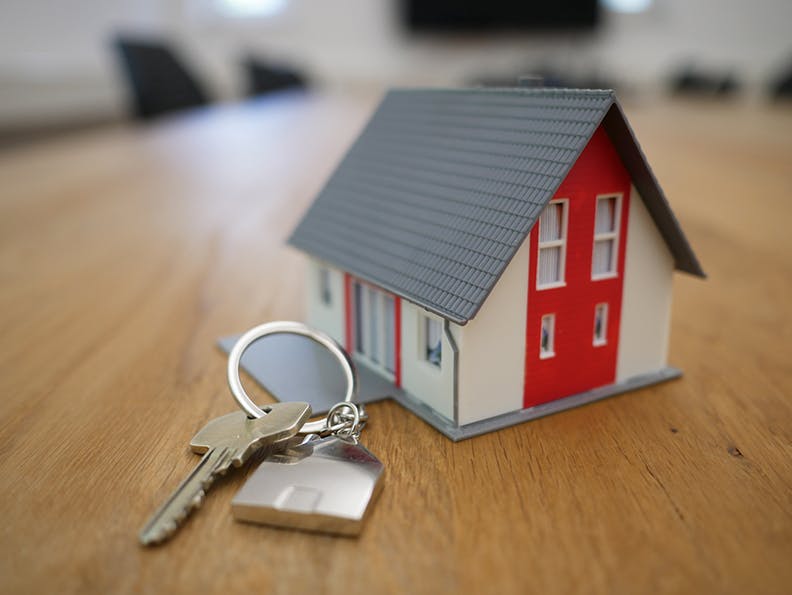
Security is a difficult thing to control today. Managing apartments and homes, keeping track of money and important documents, keeping medication out of sight and away from children or family members, it’s all a bit tricky to manage, organize, and secure. It does not have to be, however, with the right tools. Lock boxes are designed not only to secure items from theft, they also help keep important items in order. Available in many different sizes and shapes, lock boxes are built for many different purposes. These lock boxes range from, a residential lockbox for keeping multiple keys protected for prospective tenants, lock boxes for petty cash and temporary security, to business lock boxes meant to protect assets and sensitive papers.
You may wonder about the difference between a safe and a lock box. The main difference is usually size, although there are many safes that are small enough to serve as lock boxes themselves. They both keep things secure, of course. But lock boxes serve a few particular purposes and functions that general safes do not. We will illustrate in this article what lock boxes are designed to contain and how the difference between safes make them useful. Lock boxes have their pros and cons, however, and it is important to understand these as well.
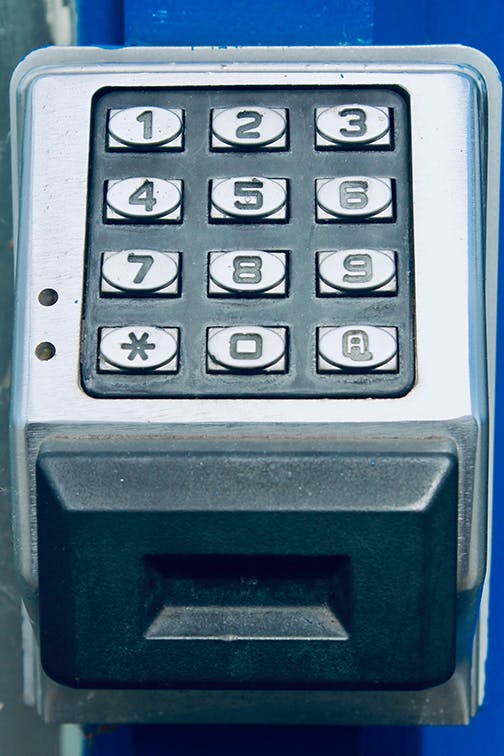
What Is a Lock Box and How Does it Work?
A lock box, by definition, is a lockable container, typically for storing money or valuables. This general description could be applied to safes as well. But a lock box serves a few specific functions that large containers do not. Keeping papers inside of a safe can be difficult unless the safe is large enough. It is also impractical to leave a safe in front of a residence or apartment when your residents come to pick up their keys. And why make it a hassle for new prospective tenants to retrieve their keys from the main office when there is a much easier way?
While a safe has its uses, a few features set a residential lock box apart. These include portability, easy storage, and simple access. This may make them appear to be functionally less secure than safes. This is true for certain lock boxes and incorrect for others. For instance, a petty cash box can be swiped fairly easily if ignored and left out in the open. But a post office lock box is perhaps one of the most secure ways to keep mail protected until it can be retrieved. Each type of lock box should be used for a specific purpose, whether to protect or to be protected.
You may be asking yourself: “What’s the point of a lock box if I have to protect it instead of the other way around?” You would be right in asking this, as lock boxes do come with their pros and cons, which we clarify below.
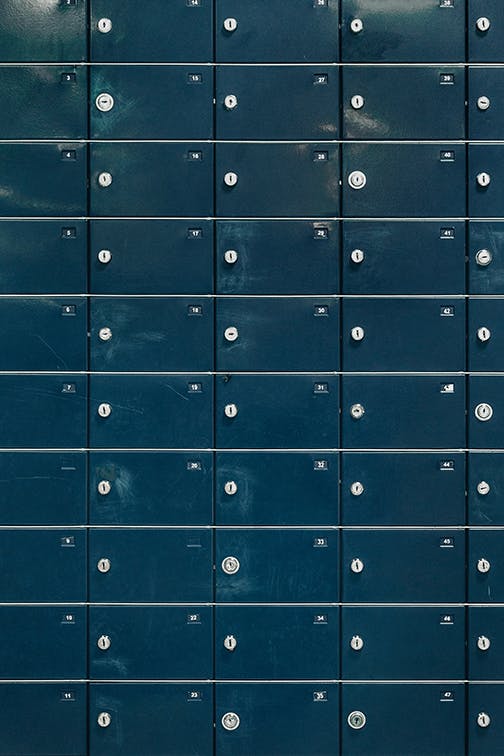
Pros and Cons of Using a Lock Box
Lock boxes and safes are consistently compared when it comes to business security. When you think of a safe, you think of a lockable container that is solid and strong, made of steel, fireproof, and difficult to break into. Lock boxes, on the other hand, bring to mind flimsy boxes that bend and break at the first sight of a crowbar, a set of bolt cutters, or maybe even a determined screwdriver. In truth, they each have their uses. Some safes are just as weak to a crowbar as a lock box might be, and no one wants to lug around a safe all day when a temporary container will do the job.
The Case for Lock Boxes
Pros:
- Portability: Most lock boxes are built to be carried, with only a few exceptions. This can allow an easy exchange of important items around an office or the holding of a set of keys on the door handle of a rental property.
- Ease of access: A lock box is meant to be opened and closed much faster than a safe would be expected to. This does not mean that they do not use the same types of locks that safes do, however.
- Variable in weight: Key lock boxes only weigh a few pounds, where a sensitive document lock box fully loaded may weigh ten times that. While nowhere in weight when compared to a large safe or a gun safe, a lock box will weigh exactly what is needed.
- Varied uses: From petty cash lock boxes to P.O. boxes, medication lock boxes to key lock boxes, these lockable containers have a lot of specific uses that generalized safes may not.
Cons:
- Dependence on concealment: The small size of a lock box makes them easy targets for thieves to steal. After all, there is no need to break into a safe onsite if you can just grab the whole box and run. Finding the right place to store and conceal it is just as important as its purpose.
- Too much ease of access: This is especially true if you have multiple people pulling from the lock box as the day goes by. If a lock box is not secured between each point of access, a dishonest person can easily steal from the box and leave you without a clear suspect.
- Vulnerable to heavy tools: While no thief is dumb enough (supposedly) to use an acetylene torch on a lock box, heavy-duty bolt cutters, metal shears, and angle grinders can make quick work of a lock box’s door.
- Low security compared to safes. Due to all of these negatives, it may sound as though lock boxes are useless and dangerous to use. As you will find out, however, they are perfectly useful and safe as long as they are used how they are meant to be used.
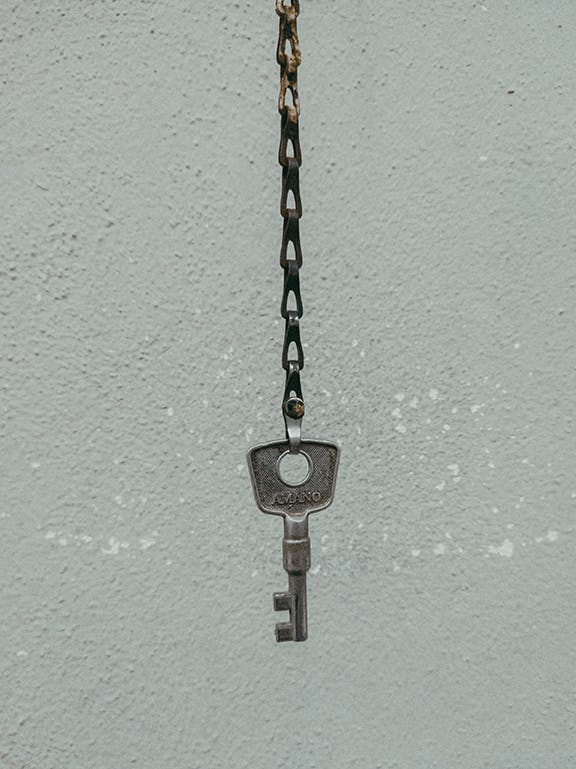
Types of Lock Boxes
Lock boxes come in as many designs and sizes as there are useful methods of using them. From small personal items for prescription medication, sensitive documents and cash, these unique containers are built tough to store everything a landlord or a business requires to operate successfully. You might say that variety is what sets lock boxes apart from safes. And here are the types of variety you can search for when you need a dependable lock box.
Key Lock Box
Perhaps one of the most useful lock boxes for real estate owners and landlords, key lock boxes are made to contain the keys your tenants will need during their time in your property. They can also contain keys to demo properties that can assist a realtor and prospective renters in viewing your homes, condominiums, or apartments without having to retrieve them from the rental office.
These real estate lockboxes are not exactly boxes. In fact, if you didn’t know any better, these lock boxes would look like elaborate locks for a door knob. Key lock boxes are actually two locks. The first is the lock that keeps the lock boxes secured to the door by the door handle; it would not make sense if someone could steal the lock box itself. The second lock is for the box itself, usually kept sealed by a four-digit combination. By sending this combination to your tenants or trusted agents, they will have access to the property keys whenever they need them without having to return them. In essence, these lock boxes are the solution for “keeping the key under the rug”.
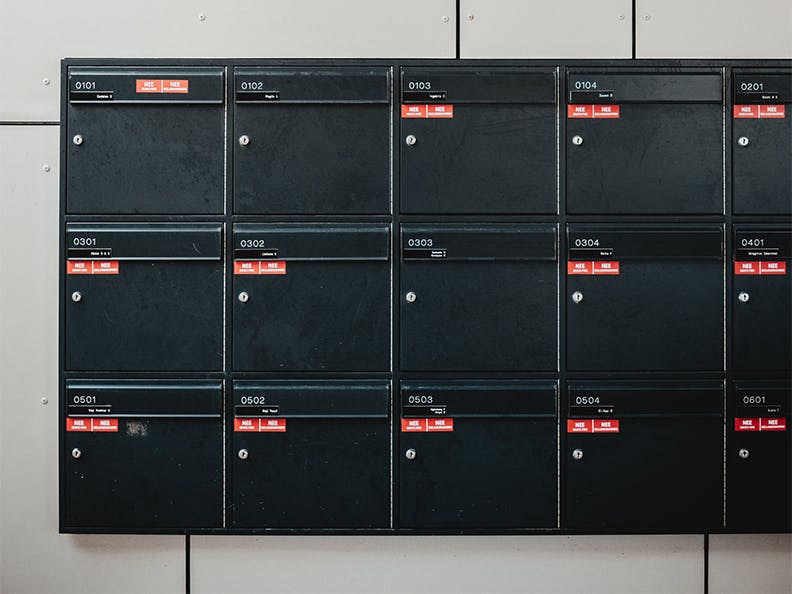
Petty Cash Boxes
Keeping and making change at an event or in the office can be a hassle. Instead of hard-to-handle cash bags or purchasing an enormous cash register, a petty cash lock box is the perfect solution. As long as they are well-tended, petty cash lock boxes are a portable and temporary way of exchanging currency for short-term events or during the day.
Their advantages of portability and ease of access are also their disadvantages, and petty cash boxes should never be ignored or left out for long periods of time. It is good practice to empty petty cash boxes at the end of each day, storing cash inside of a more sturdy locking container or taking the currency to the bank for exchange until the next time cash is required. If the cash lock box is small enough or you have a safe or lockable container large enough (such as a filing cabinet or locker), it can also be stored inside for an added measure of security. We still recommend not keeping cash inside long-term, as the chances of theft only increase over time.
Medicine Lock Box
Medications are not something to keep out in the open, whether in home or office settings. A very unique way of storing and securing medications is with a medicine lock box, both for wall-mounting or storing underneath a bathroom counter. There are many designs of locking mechanisms for these safes as well, from the traditional key padlock to biometric locks designed to allow only a single person access. Of all of the kinds of valuables you could contain inside of a safe, protecting your prescription drugs is important for your well-being and for those who might be looking to steal them for undirected use.
Specifically, the opioid epidemic in the United States continues to affect hundreds of thousands of people, making them dependent on expensive painkillers that only numb the pain instead of treating it. In fact, they cause a different harm all on their own: according to the CDC, the yearly cost of the epidemic reaches $78.5 billion a year in “costs of healthcare, lost productivity, addiction treatment, and criminal justice involvement.” There has never been a more important time to keep opioids away from businesses and homes than now.
You can find additional information about the importance of securing opioids and painkillers on the FDA website.
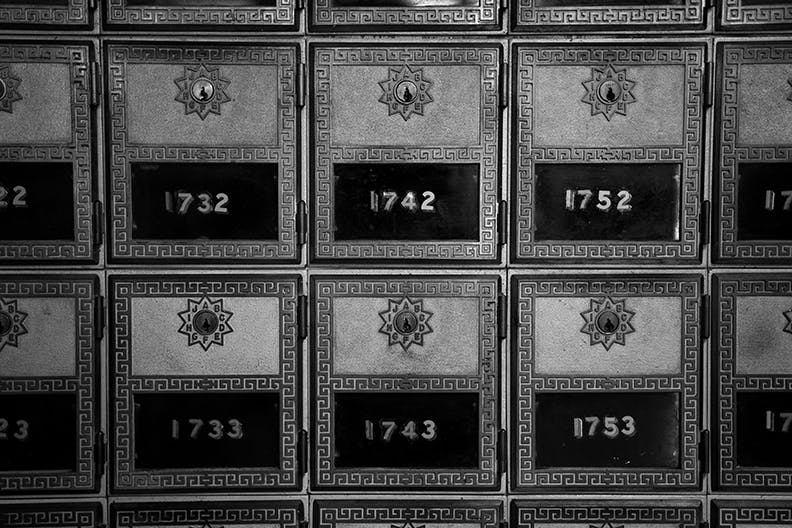
Sensitive Document Lock Box
Sometimes a filing cabinet is not going to do the right job in protecting sensitive files. In fact, sometimes you need a lock box to go inside the filing cabinet to provide an extra layer of security to highly sensitive information like registration forms (especially forms with information like social security numbers). A confidential lock box or sensitive document lock box is a lock box that is constructed to operate like an advanced filing cabinet with a tough lock and portability in mind.
The one additional advantage a lock box of this type has is concealability. If it cannot fit inside of another secure and lockable container, it can be hidden beneath desks or inside the office where no one can enter and gain access. Identity theft is a common and serious threat in today’s modern world, and such information can be very lucrative to someone who would use it. We recommend that only very trusted people have access to such lock boxes. With a spare key or two, a limited number of keyholders would also assist you in identifying the person or persons involved in stealing information for themselves. Safety and security for sensitive information is absolutely vital to be trusted as a realtor, landlord, or business owner.
Post Office Lock Box
If you are looking for a secure way to receive your mail, there is no place more secure than a post office box. Also known as a P.O. box, these lock boxes are, in fact, a mailbox that is kept inside the post office itself. Regular mailboxes are known for theft, even if it is a felony to do so. Mailboxes with locks can be relatively secure, but if boxes of important supplies or sensitive information is brought and left at your doorstep, it could mean disaster if some thief came and swiped it right from the doorstep. With a P.O. box, they will hold all mail and packages until you come to retrieve them.
The one disadvantage to P.O. boxes is that some retailers and suppliers will not send products to P.O. boxes for legal or policy reasons. In cases like these, you can usually request that packages from these companies be sent during certain times of day when your office is open. Be aware that some do and some do not. Keeping your mail safe and secure is of utmost importance, and a P.O. box can help with this.
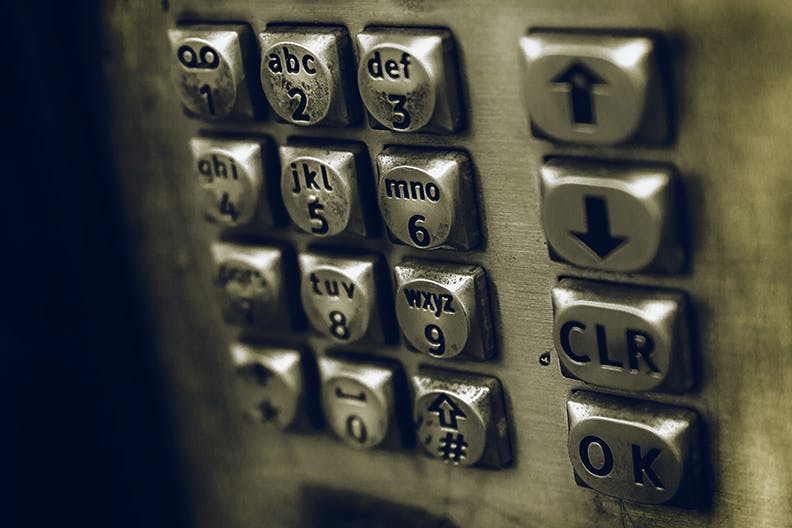
Finding the Best Available Lock Boxes
Finding lock box information online is not difficult these days, as everyone is trying to compare them to safes and which of the two are best. Some try to break it down to the absolute best lock boxes on the market. Honestly, looking at lock boxes in these two ways is missing the point of why these lockable containers work at all. Instead of trying to find the “best”, try to find the type of lock box that is built for the purpose you have in mind.
Once you find the lock box with the dimensions you need, reading good customer reviews is a good way to do reliable research. The price point of the lock box does not always equate to good quality, for example, and unreviewed products may require a bit more investigation. If portability is what you need, all you have to do is check the weight of the lock box. If security is more important, finding the right lock can make a great difference. Here are a few tips on what you should look for before purchasing.
What Should You Look For When Buying a Lock Box?
As mentioned, there are generally three different characteristics you should investigate in a lock box before considering a purchase: security, physical dimensions, and lock type. All three of these are intertwined, so finding the right balance is important.
Security is an obvious factor. While lock boxes are temporary and concealable, if someone with a pair of bolt cutters can come through your door, cut the padlock right off the front of your box, and make off with sensitive information or cash, then you might have chosen the wrong lock box. A great example of security is a P.O. box. Using a P.O. box should depend on the type of mail you consistently receive; unless you worry about constantly having to make special arrangements for pre-signed packages, you should take the security of the post office to your advantage.
A secure lock box will match the concealment method in physical dimensions in size and weight. A petty cash box that is consistently emptied may not need to be concealed or placed anywhere special, whereas a sensitive document box will need to be placed inside a cabinet or drawer away from prying eyes. When purchasing key lock boxes, you should research the size of the door handle of each apartment or realty property to ensure the box will fit properly and cannot be stolen.
As for locks, you will need to consider the type according to the purpose of the lock box. For a petty cash box, you probably do not need a biometric lock. And for a medicine lock box, a small padlock will probably not “cut” it (pun intended). There are almost as many lock box designs as there are locks to go with them, so take some time finding the right combination.
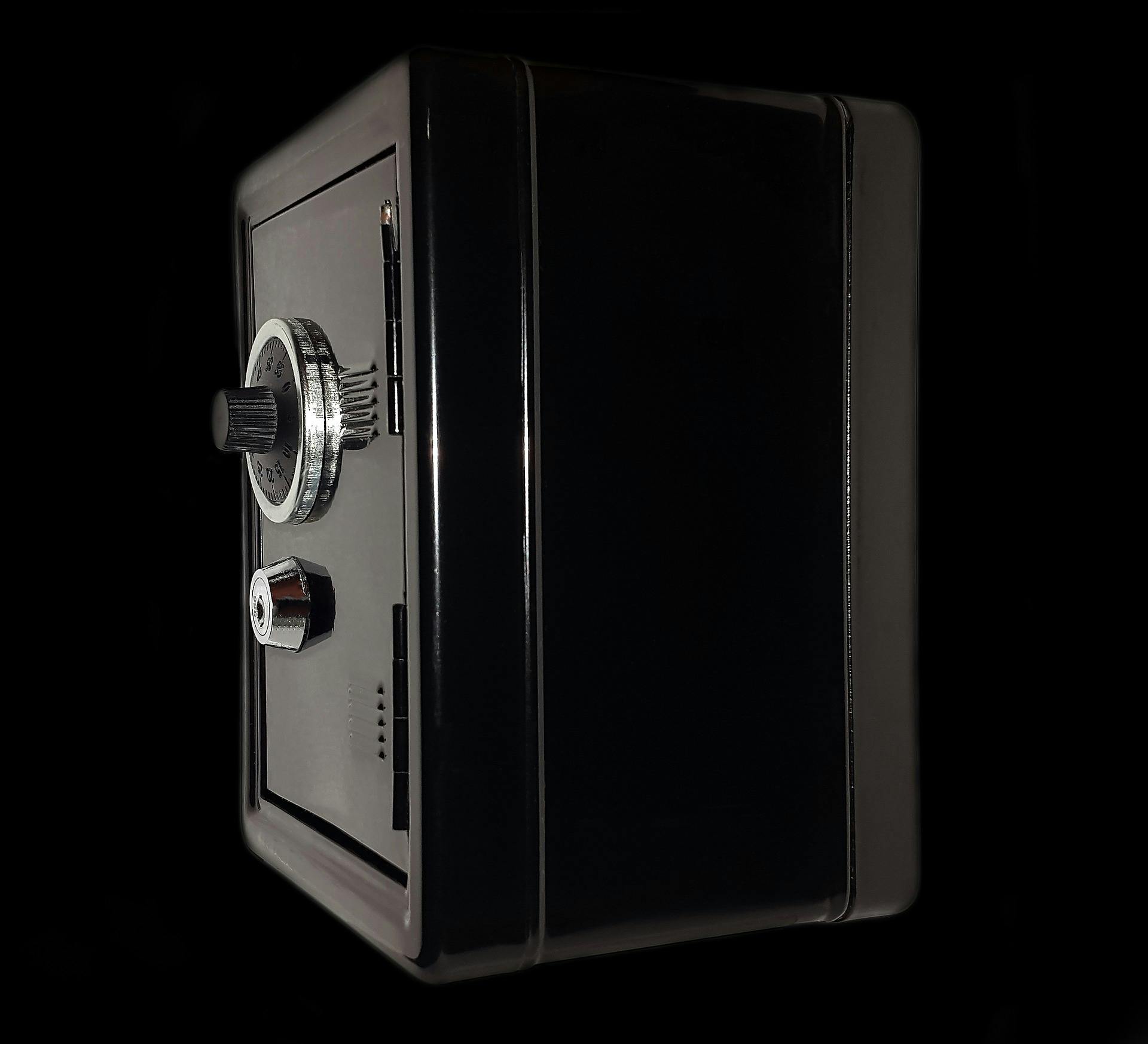
Tips for Using Lock Boxes Safely
Finally, we want to leave you with some tips on how to use your lock box safely and securely. Remember in the end that you should always use your lock box for the purpose it was designed for.
- Never leave cash or sensitive information in lock boxes for long periods of time. If you doubt a lock box can properly handle the type of security necessary to secure documents, currency, or different assets in your office or business, there is nothing wrong considering a different and more robust form of security.
- Besides the obvious exceptions, use lock boxes for convenience and not permanent security. Portability and ease of access are the hallmarks of a lock box. When the day is done, remember to keep keys and cash secured.
- Combine safes (or dependable lockable containers and cabinets) and lock boxes for maximum security. There is absolutely nothing wrong with combining the best of both worlds.
- Use electronic lock boxes to prevent loss of keys, or vice versa. This is a wise idea for both safes and lock boxes. If you lose your keys, you can always remember a short PIN number. And if you forget your PIN number, you can always use a backup key to gain access. Just be sure to put those keys in a safe and familiar place!
Cove Security
While Cove currently doesn’t offer lock boxes to our customers, check out our selection of other security products.
